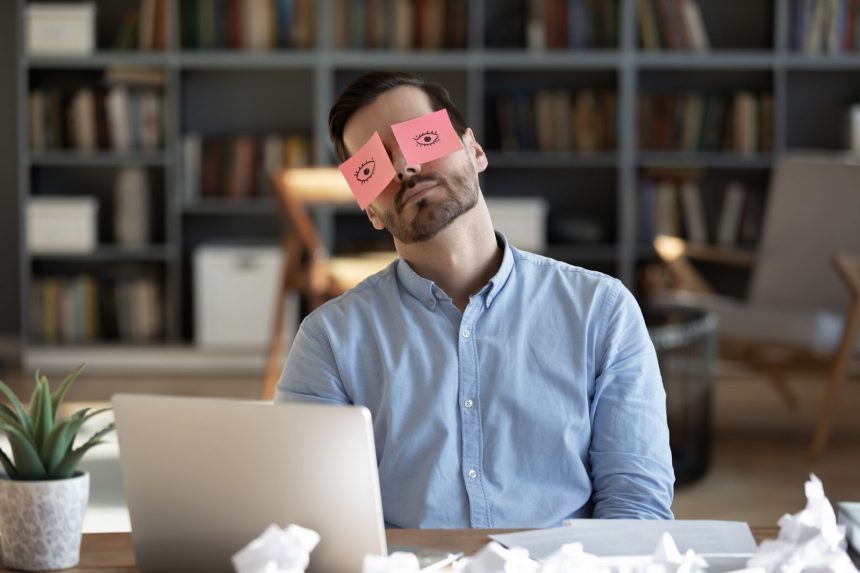Some people find it challenging to fall asleep at night. Often, they believe they have too much to do and fear the day will be ruined if they don’t stay up and get everything done.
However, your entire day can also be affected if you don’t get enough sleep at night. You may experience symptoms such as a lack of alertness, excessive drowsiness during the day, and even memory impairment.
Here are some common causes of sleep deprivation:
Overthinking
People who suffer from stress, anxiety, depression, and insomnia typically say that racing, intrusive, and unwanted thoughts make sleeping more complex than physical discomfort. Stressful thoughts might keep you awake at night and make falling or staying asleep difficult.
Lacking a pre-bedtime routine
The blue light from electronic screens can disrupt your brain’s melatonin production at night, making it harder to fall asleep. A late-night snack may also cause blood sugar levels to rise, waking you up at night and making it difficult to go back to sleep. In this case, consider incorporating a natural supplement like a cannabis dip into your bedtime ritual for a better night’s rest. Cannabinoids like CBD can benefit you in various ways, from helping promote relaxation and reduce physical discomfort to putting your mind at ease.
A sudden shift in circadian rhythms
The body’s innate circadian rhythm, also known as the body clock, instructs individuals about the time to sleep and the time to wake up. However, if you suddenly work during the day while your body is used to working the graveyard shift, you may delay going to bed even though you are drained.
Excessive caffeine consumption
Caffeine use has short-term performance benefits, but excessive amounts of caffeine in the system may cause insomnia symptoms or intensify pre-existing insomnia.
Underlying health conditions
Some people may have unknown medical issues that make it difficult to sleep well. Sleep apnea, for example, is a type of sleep problem in which breathing repeatedly stops and starts during sleep, affecting the overall sleep quality.
Four Ways to Improve Sleep
Sleep deprivation causes all have one thing in common: they distract the mind from relaxing and replenishing your energy. Fortunately, simple solutions are available to help with this problem, such as adding natural sleep-inducing supplements to your diet, listening to soothing music, or meditating until your eyes become heavy.
Since everybody is different, some of these methods may or may not work for you. Here we give tips on resetting your sleep routine, alongside some recommendations for getting better sleep.
Here are four ways to help you sleep better tonight:
Step 1: Get back into the habit of hitting the sack at the same time every night (including weekends)
Maintaining a consistent sleeping pattern reinforces your body’s sleep-wake cycle, allowing you to progressively train your body to sleep for that amount of time in one sitting. If you’re still awake after 20 minutes, even with your eyes closed, consider leaving your bedroom and doing something relaxing. When you’re tired, go back to bed. Repeat as necessary.
Step 2: Keep your bedroom cool and dark to make it easier to fall asleep
Create an ideal sleeping environment. Preferably, your bedroom should be cold, quiet, and dark, as exposure to light may make it more difficult to fall asleep. Avoid using light-emitting screens, such as your phone, computer, or television, for an extended period right before bedtime.
Step 3: Avoid eating right before bedtime
Eating heavy meals or drinking less than an hour before bedtime makes you more likely to have a restless night’s sleep. Certain foods, such as caffeine or chocolate, can also interrupt sleep patterns if you eat them too close to rest.
Step 4: Make sure you receive enough exercise during the day
People who exercise consistently have better sleep cycles at night. As a general goal, aim for 30 minutes of physical activity at least four times per week. If you’re not a morning person, aim to get your workout in before noon because late afternoon workouts might lead to wakefulness.
Final Thoughts
With all of this in mind, it’s evident that a holistic approach is best. Find ways to relax physically and psychologically, establish a comfortable resting environment, and benefit from a natural sleep aid or two.















